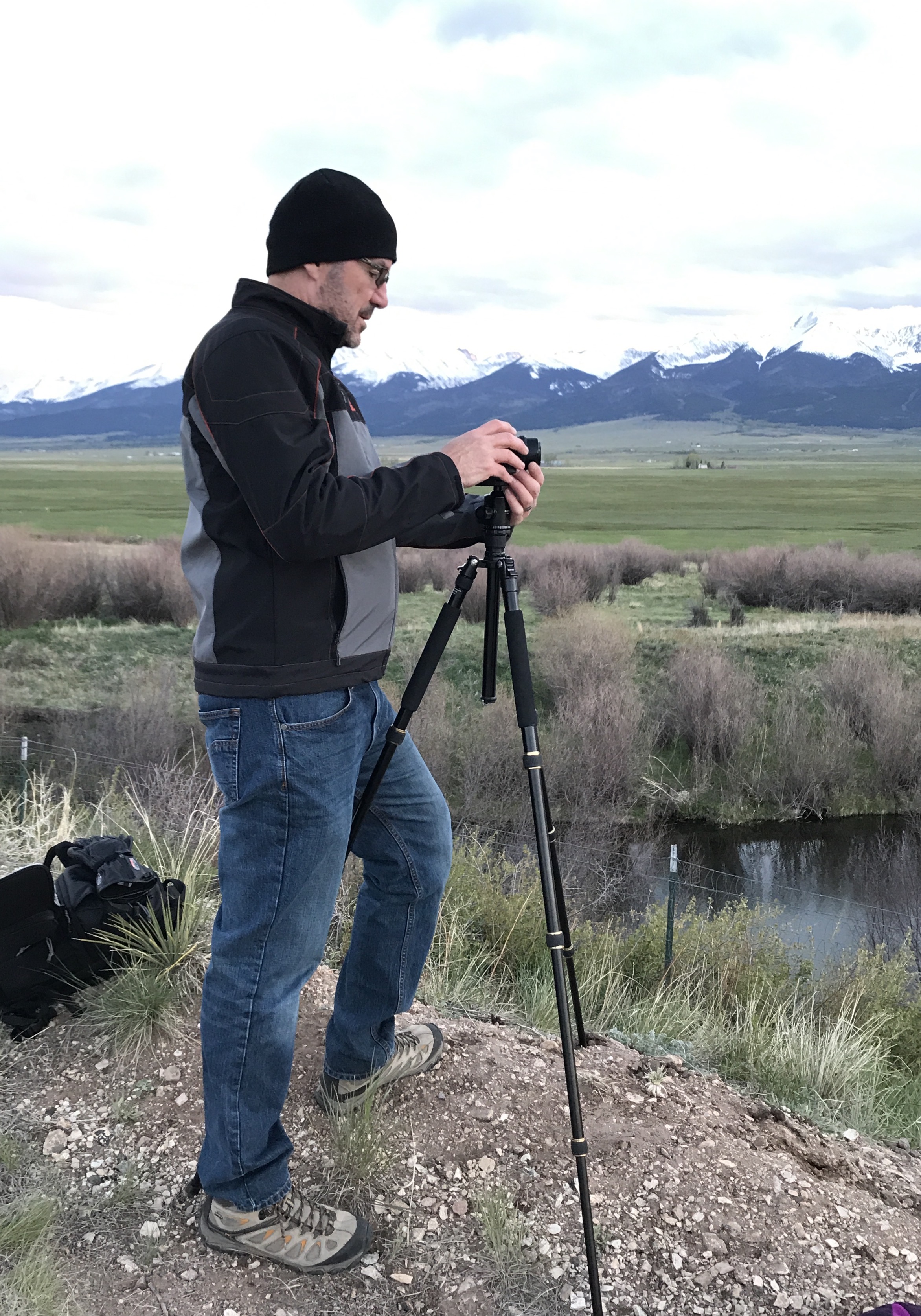Stillness
- Chris Monnette

- Oct 24, 2025
- 4 min read
Updated: Oct 24, 2025
When the Buzz Won’t Stop

It was a perfect late-summer evening. I had just finished working on my novel and felt good about the progress. I’d finally broken through a stubborn section that had haunted me for weeks.
My wife was away that night, so it was just Skye and me. I stepped into the backyard and sat on the loveseat beneath our redbud tree. The wind spinner we’d picked up on a trip to Door County a few years ago turned lazily in the soft breeze. A quiet coo rose from the doves perched on my neighbor’s roof, their temporary home for the season.
Skye curled up beside me, her head resting on her paws. I stretched out, put my feet up, and let the quiet of the moment wash over me.
This is perfect, I thought, letting my mind go still, just taking in the moment.
You know what would make this even better? A little music.
I picked up my phone, found an upbeat jazz playlist, and hit play on the portable speaker beside me.
Perfect again. I sat there listening to the gentle rhythm, feeling the cool air, the stillness, the hum of an evening winding down.
Not this song.
I picked up the phone again and switched playlists.
Better.
I tried to let my mind be quiet. When it drifted back to my novel, I told myself, just be here.It was the perfect night for it too.
I’m forgetting something. Better check.
I glanced at my phone. No texts. No emails. I set it down. Excellent—nothing to do.
But wait. Did I save that chapter I was working on?
Maybe you see where this is going.
This little scene has played out more times than I care to admit. Why is it so hard for me to be still?
One of the most common things I hear from my retired friends is, “I don’t know how I ever had time for a full-time job.” It’s strange how life has a way of filling up the spaces we leave. My life is no different—every minute seems to find a way to get filled. The funny thing is, most of what seems to fill my days was already part of my life before I retired. So where did all the time go?
There’s no doubt I move through my days with less urgency than I once did. I’m no longer rushing from one thing to the next. It’s more like wandering—from one small pleasure or obligation to another. That’s a welcome change. It leaves plenty of time to breathe. But the odd thing is, I rarely take advantage of it, at least not as often as I could.
I have a steady meditation practice. I sit every morning for at least thirty minutes and haven’t missed a day in more than a year. But that’s not the kind of stillness I’m talking about. In some ways, even that has become one of my daily obligations—another thing I do.
The stillness I mean is quieter and harder to reach. It lives in the moments between activities, when there’s nothing to accomplish and no clear next step. That’s when I notice the impulse to reach for something—to check my phone, open the computer, turn on music—anything to fill the space. That’s when a familiar unease begins to stir, a quiet restlessness in my chest that doesn’t know where to go.
In When Things Fall Apart, Pema Chödrön calls this restless avoidance. She writes that when we stay constantly busy or distracted, we’re really avoiding direct contact with our own fear, grief, or tenderness.
She suggests that restless avoidance is how we run from the rawness of being human. We flee to the safety of movement—tasks, screens, conversations, distractions—anything that keeps us from feeling the groundlessness beneath our feet. But in doing so, we also flee the possibility of genuine aliveness.
Intellectually, I understand that. But I can’t say I feel it when I reach for my phone instead of being still. Maybe that’s the point. Maybe I’m shielding myself from it.
I think the tendency is to dress it up in something more noble: I’m just staying active. I like to keep busy.
For me, there’s a clear distinction between what might be called ordinary busyness and what Chödrön calls restless avoidance. Ordinary busyness can feel purposeful and energizing—getting things done with intention. What Pema describes feels tense and compulsory, as if stopping might let something catch up. When I sit and reflect on that feeling, it rings true. Perhaps it comes from forty years in a career where everything was measured by one metric or another.
I’d love to end this by saying that through reflection I’ve come to see that the reason I reach for my phone is my “avoiding direct contact with my own fear, grief, or tenderness.” But I can’t say that, at least not yet.
What I can say is that when I pause long enough to ask myself, Why am I doing this? I’m surprised by how often I have no answer. And that, I think, is a good first step.
Closing Note: If something here spoke to you, please click Like or share your thoughts in the comments. And if you think others might connect with it, please share it.step.




Comments